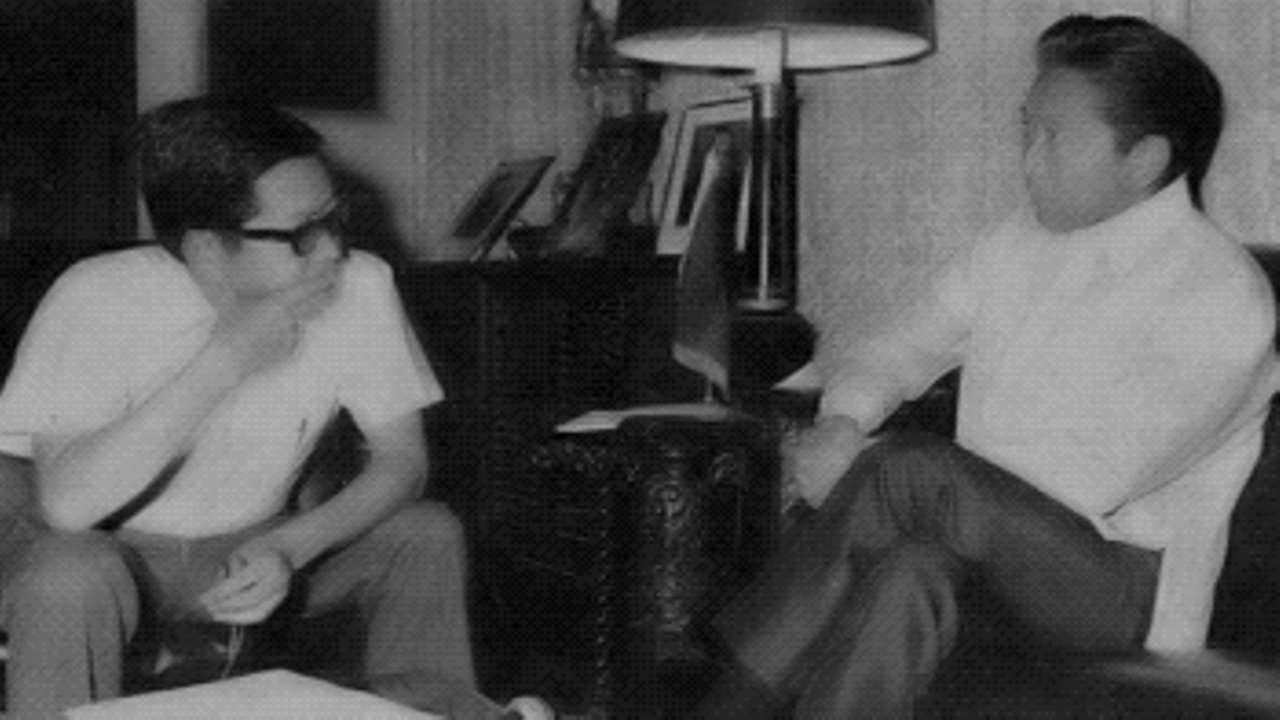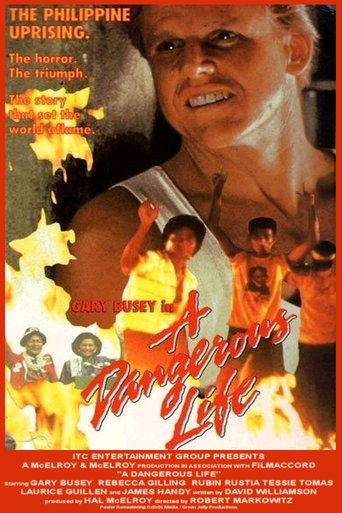


A Dangerous Life indeed. The title of this movie describes life in the Philippines during the reign of Ferdinand Marcos. It was the best and worst of times. A great time of power and wealth if you were one of his cronies, but also dangerous if you ever crossed him or were perceived as a threat. The film is not balanced in any way in its portrayal of characters or of history. The Marcos regime is remembered for all of the bad reasons, and although I am not a supporter of them, there are still many Marcos supporters out there, even to this day.There are many characters in this film that I would like to discuss. The first character I want to focus on is President Marcos. He is depicted as a powerful despot. He is charismatic, but also cruel and manipulative. He must have been highly skilled (in his lifetime) in order to gain control over such a diverse nation, but the film failed to show this. The film did not go into detail about how the President came to power, and in many scenes he seems at a loss, and unsure of what to do next. The next character I want to mention is Imelda Marcos. She is portrayed as more stable and focused than her husband. She seems to be the power broker "advising" her husband (pulling the strings like a puppeteer) and dealing directly with people (herself) to get things done. She is also highly manipulative and calculating like her husband. Corazon Aquino on the other hand is the direct opposite of the Marcos's. She is portrayed as a simple housewife (derogated by Imelda for being simple). She seems sincere and caring. She takes on the benevolent mission of her assassinated husband to seek and end to corruption and return the government to the common people of the Philippines. Her character (as portrayed) is so good (benevolent) that she seems to lack some basic and expected motives. She does not seek vengeance for the loss of her husband, (she does not seek to arrest or to destroy the Marcos's) and in one scene she even prays for her husband's former jailer.An issue I would like to discuss, is that of the U.S. involvement in the support of the Marcos regime. The movie made it clear that the U.S. was complicit in its support of President Marcos even while aware of the human rights violations perpetrated by his government. According to the movie the U.S. needed strategic military bases in the Philippines in order to support its military power in the Asia/Pacific region. Many news clips were used to support the movies stance, including statements of various U.S. government officials, praising and supporting the Marcos's during their ouster. Other news clips supported the U.S. narrative regarding the Philippines and the Marcos's calling the regime a friend of the U.S. and a "democratic" government (ignoring widespread election fraud/tampering). This is how the U.S. makes its support for despotism more palatable for the U.S. public.In conclusion, I enjoyed this movie for what it was, a drama mixed in with some political history. Some people may need the added story lines and back stories of the characters to make the overall movie more interesting, but I did not as I already enjoy history and political science (my two favorite subjects of study).McElroy, H. (Producer), Markowitz, R. (Director). (1988) A Dangerous Life Motion Picture. Philippines: HBO
... View MoreA Dangerous Life is an Australian film about the final years of the Philippines under Ferdinand Marcos' rule, from the assassination of Benigno Aquino, Jr. in 1983 to the People Power EDSA Revolution in 1986 that ousted Marcos. Gary Busey stars as an American TV journalist, on the scene when the tempestuous situation in Manila boils over. He puts his own life on the line to get the inside story of the overthrow of the Marcos regime. The film was shot on location in Sri Lanka.The film focuses on American TV journalist Tony O'Neil, who finds himself in the middle of key events that lead to the downfall of the Marcos regime. The mini-series included a cast of talented Filipino actors and actresses such as Ruben Rustia, Joonee Gamboa,Ray Ventura and Tessie Tomas,who had an impressive portrayal of Imelda Marcos.A Dangerous Life is an skillful recreation of a defining time in the history of the Philippines,a country who taught the world a lesson or two about democracy, the importance of unity and what it could achieve takes through non-violence - overthrowing the Marcos dictatorship - which makes them proud nation. Every Filipino would surely be proud of this achievement.
... View MoreI watched the actual events unfold in the news on TV. For those four days, I was glued to that TV. Although this movie was not totally factual, I enjoyed watching it and felt the emotion and energy of the story. The first time I watched it, I was tearing near the end. But that soon stopped when I noticed that the actors portraying the Filipinos in the street were NOT Filipino! What a disappointment. To viewers who can't tell the difference in appearance between a Filipino and another Asian, it's not so bad. But for a Filipino who happens to be taken by the emotion and tension of the scene in the movie, it was such a disappointment. Overall, the movie was good. It adequately portrayed the message of the whole People Power Revolution and what it was able to accomplish...
... View MoreI have seen this mini series thrice. I must say it's much more fictional than factual. Although Ruben Rustia was awesome for his role as President Ferdinand Marcos (he received a Best Actor award), none of the other actors/actresses were convincing, including Gary Busey. Maybe Anti-Marcos people would disagree otherwise, but I'll give this mini series a 2/10 score. Sri Lankans substituted for Filipinos? There's one obvious goof in this movie. When Air Force General Sotelo landed his helicopters at Camp Crame, you can notice in the background the moving traffic along E. Delos Santos Avenue (EDSA). During this so-called EDSA Revolution, the only vehicles on EDSA are some military and news vehicles.
... View More